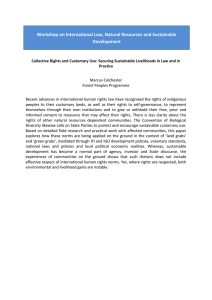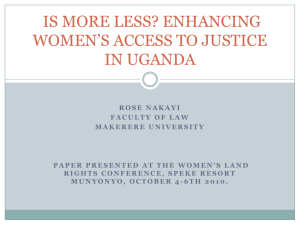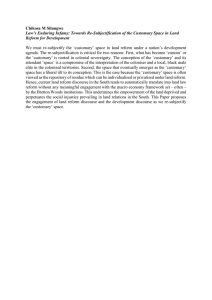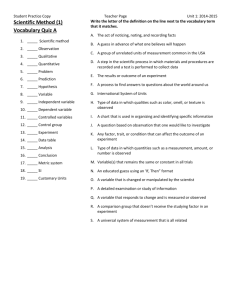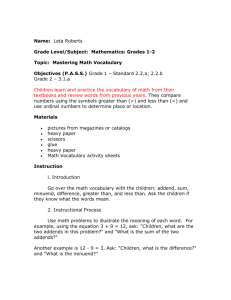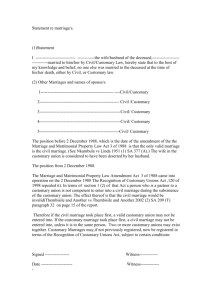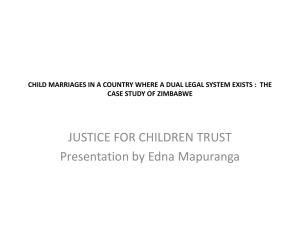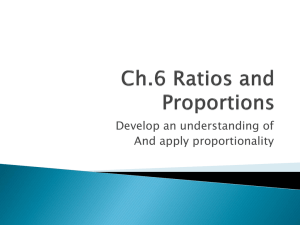Willemien Du Plessis
advertisement
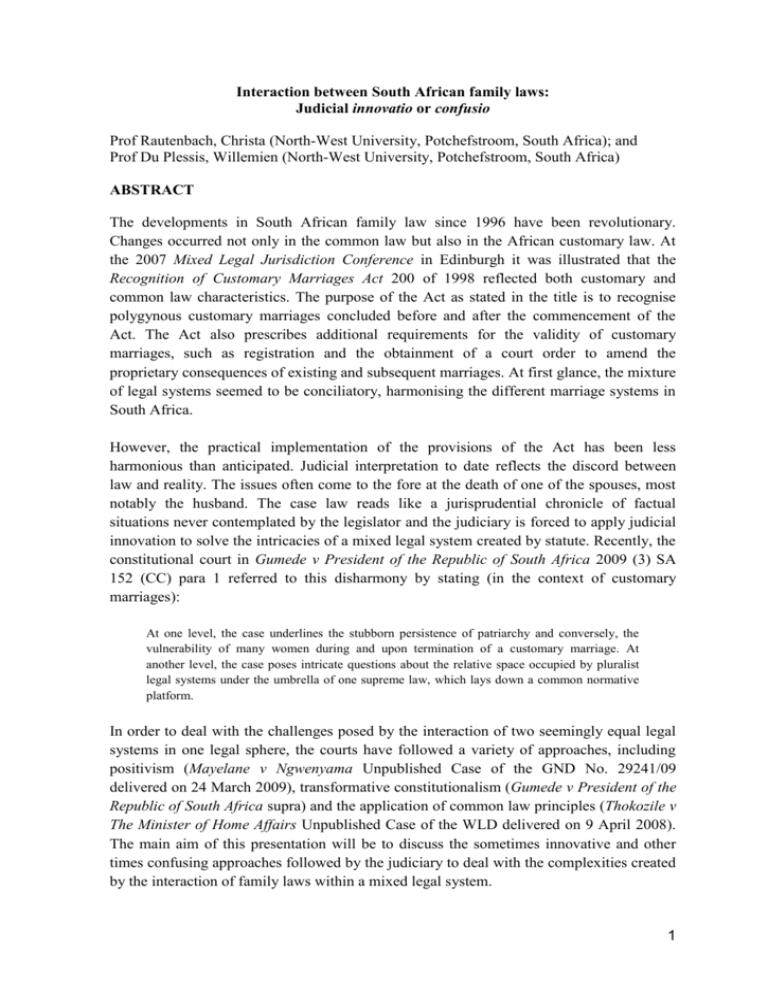
Interaction between South African family laws: Judicial innovatio or confusio Prof Rautenbach, Christa (North-West University, Potchefstroom, South Africa); and Prof Du Plessis, Willemien (North-West University, Potchefstroom, South Africa) ABSTRACT The developments in South African family law since 1996 have been revolutionary. Changes occurred not only in the common law but also in the African customary law. At the 2007 Mixed Legal Jurisdiction Conference in Edinburgh it was illustrated that the Recognition of Customary Marriages Act 200 of 1998 reflected both customary and common law characteristics. The purpose of the Act as stated in the title is to recognise polygynous customary marriages concluded before and after the commencement of the Act. The Act also prescribes additional requirements for the validity of customary marriages, such as registration and the obtainment of a court order to amend the proprietary consequences of existing and subsequent marriages. At first glance, the mixture of legal systems seemed to be conciliatory, harmonising the different marriage systems in South Africa. However, the practical implementation of the provisions of the Act has been less harmonious than anticipated. Judicial interpretation to date reflects the discord between law and reality. The issues often come to the fore at the death of one of the spouses, most notably the husband. The case law reads like a jurisprudential chronicle of factual situations never contemplated by the legislator and the judiciary is forced to apply judicial innovation to solve the intricacies of a mixed legal system created by statute. Recently, the constitutional court in Gumede v President of the Republic of South Africa 2009 (3) SA 152 (CC) para 1 referred to this disharmony by stating (in the context of customary marriages): At one level, the case underlines the stubborn persistence of patriarchy and conversely, the vulnerability of many women during and upon termination of a customary marriage. At another level, the case poses intricate questions about the relative space occupied by pluralist legal systems under the umbrella of one supreme law, which lays down a common normative platform. In order to deal with the challenges posed by the interaction of two seemingly equal legal systems in one legal sphere, the courts have followed a variety of approaches, including positivism (Mayelane v Ngwenyama Unpublished Case of the GND No. 29241/09 delivered on 24 March 2009), transformative constitutionalism (Gumede v President of the Republic of South Africa supra) and the application of common law principles (Thokozile v The Minister of Home Affairs Unpublished Case of the WLD delivered on 9 April 2008). The main aim of this presentation will be to discuss the sometimes innovative and other times confusing approaches followed by the judiciary to deal with the complexities created by the interaction of family laws within a mixed legal system. 1
